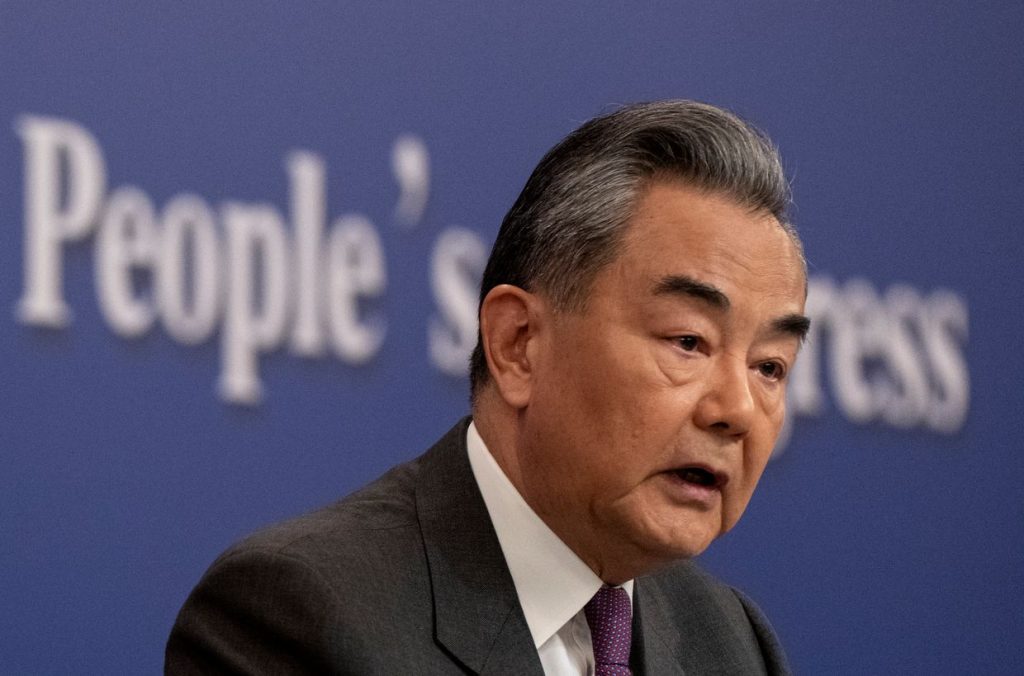Over two dozen countries have expressed support for China’s alternative peace plan, as reported by Bloomberg on June 4. Chinese Foreign Minister Wang Yi stated that at least 26 nations have either agreed to or are seeking ways to join the conference suggested by China, while 45 countries have supported the ideas presented in the alternative plan. Ukraine had invited China to a peace summit in January, but Beijing declined to attend as the terms required for participation were not met. This Chinese proposal is presented as an alternative to President Volodymyr Zelensky’s peace plan, which will be discussed at the upcoming peace summit in Switzerland. Zelensky’s 10-point peace formula, first outlined in the fall of 2022, focuses on the complete withdrawal of Russian forces from Ukraine, holding responsible parties for war crimes, and releasing all prisoners, among other objectives.
The alternative peace plan put forth by China and Brazil in May calls for an international conference recognized by both Ukraine and Russia. Despite Russia not being invited to the peace summit, China has received mixed responses to its peace proposals. China previously pitched a peace proposal in February 2023, which was praised by Russia, dismissed by the West, and received a mixed response from Kyiv. The leaders of the warring countries have shown reluctance to negotiate directly with each other, with Chinese Foreign Minister Wang Yi stating that conditions are not yet conducive for peace talks. Ukraine’s President Zelensky accused China of obstructing attendance at the summit by other countries, to which Chinese Foreign Ministry spokesperson Mao Ning denied, emphasizing China’s neutral stance in Russia’s conflict in Ukraine and refuting claims of aiding Russia with lethal aid.
The United States has expressed its view on China’s decision not to attend the peace summit, stating that China could play a useful diplomatic role if it wanted to. U.S. State Department spokesperson Matthew Miller emphasized that the U.S. and European counterparts have objected to China’s actions and are prepared to hold entities accountable for their actions. Despite the support for China’s alternative peace plan from several countries, including those backing Zelensky’s peace plan, the dynamics of the conflict in Ukraine remain complex. The refusal of key stakeholders to directly negotiate with each other, coupled with the ongoing conflict and humanitarian crisis in Ukraine, underscores the challenges in achieving a peaceful resolution. The involvement of various nations and their differing approaches to the conflict highlight the intricate diplomatic landscape surrounding the region and the importance of fostering dialogue and cooperation to address the crisis effectively.
As China’s relationship with both Russia and Ukraine evolves, the role of Beijing in mediating the conflict and promoting peace remains a subject of scrutiny and debate. While China asserts its neutrality in the conflict between Russia and Ukraine, its diplomatic engagements and proposals have drawn varied responses from the international community. The refusal of China to attend the peace summit in Switzerland underscores the complexities and nuances of the conflict, as well as the challenges in navigating diplomatic relations amidst international tensions. The ongoing efforts to advocate for independent journalism in Ukraine and support initiatives for peace underline the importance of global solidarity in addressing the crisis and pursuing a sustainable resolution that promotes stability and security in the region. By engaging with key stakeholders and fostering dialogue, there is hope for progress towards peace and reconciliation in Ukraine, as nations continue to navigate the complexities of the conflict and work towards a lasting and sustainable resolution.


